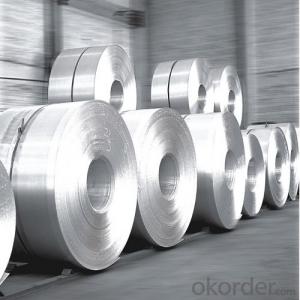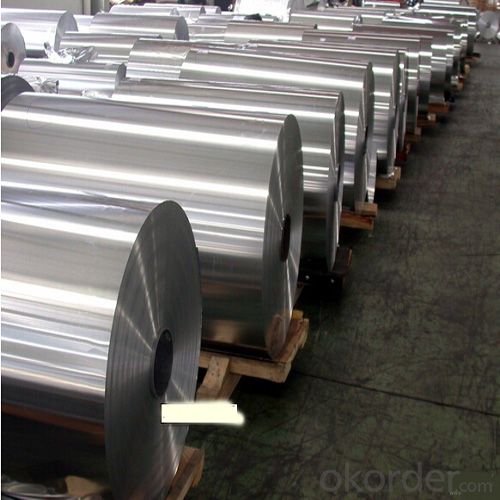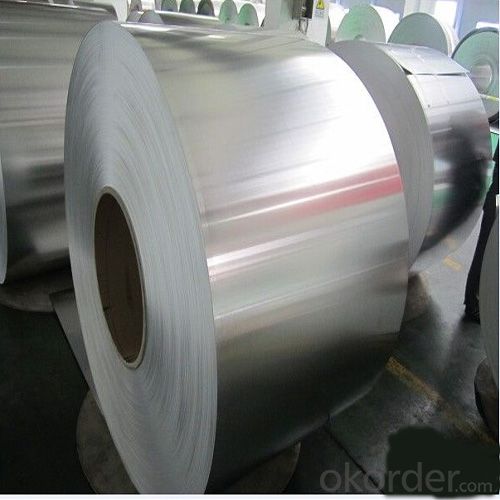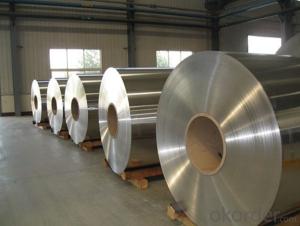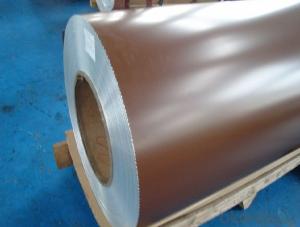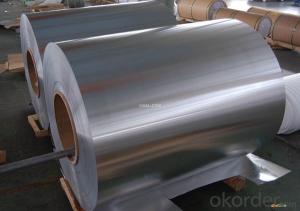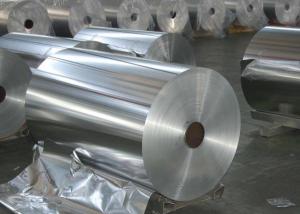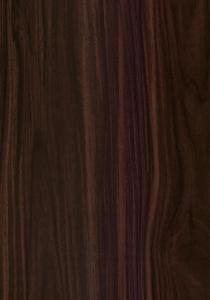Best Aluminum Coil 3003 for Truck Bodies at Competitive Prices
- Loading Port:
- Shanghai
- Payment Terms:
- TT OR LC
- Min Order Qty:
- 5 m.t
- Supply Capability:
- 10000 m.t/month
OKorder Service Pledge
OKorder Financial Service
You Might Also Like
Specification
1.Structure of Aluminum Coil 3003 for Truck Bodies Description:
Aluminum alloys 1xxx series, 2xxx series, 3xxx series, 5xxx series, 6xxx series and 8xxx series. They are available in various sizes with thicknesses from 0.1mm to 500mm, widths from 10mm to 3, 000mm andlengths below 12m. Aluminium coil 3003 Mainly used in signs, billboards, building exterior decoration, bus body, high-rise buildings and factories wall decoration, kitchen sink, lamp, fan leaves, with pieces of electronic, chemical equipment, sheet metal processing parts, deep drawing or spinning hollowware, welding parts, heat exchangers, bell surface and disk,plate, kitchenware, decorations, reflective devices, etc
2.Main Features of Aluminum Coil 3003 for Truck Bodies:
High temperature resistant nano color coated aluminum coil
Weathering resistant pre painted aluminum plate
Scrubbing resistant pre painted aluminum roll
3. Aluminum Coil 3003 for Truck Bodies Images:
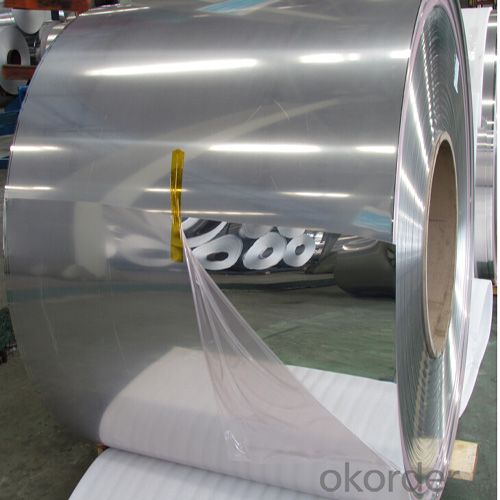
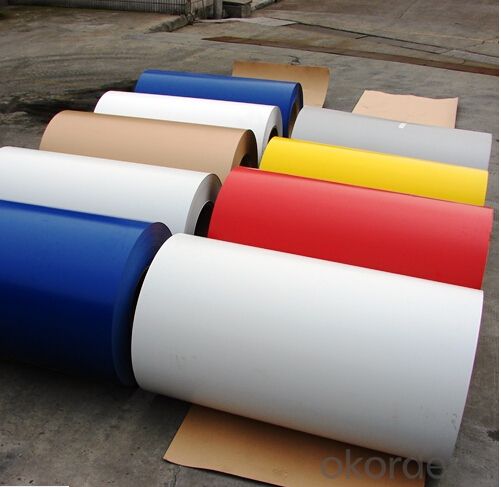
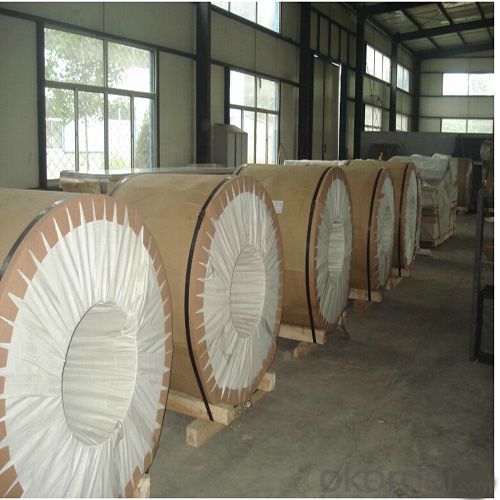
4. Aluminum Coil 3003 for Truck Bodies Specification:
| Aluminum Alloy: | AA1100,1050,3003,3004,3005,3105,5005,O-H112,ETC. |
| Temper: | H16,H18,H22,H24,H26,H28 |
| Aluminum Alloy Thickness: | 0.08mm~1.2mm(0.08,0.18,0.28,0.38,0.48,0.6,0.8,1 mm) |
| (0.1,0.15,0.25,0.35,0.45 mm) | |
| Coil Width: | 30~1520mm pre painted aluminum coil for Truck body |
| Core Diameter: | 150/405/505mm |
| Coil Weight: | 1~2.5tons each coil |
| Coating Type: | PE,PVDF,back coatting,ACRYLIC,feve |
| Surface Type: | Smooth,Embossed,mill finish,coated,brushed,etc. |
| Glossness: | 10-90%(EN ISO-2813:1994) |
| Coating Thickness: | PE:more than 18 +-1micron |
| PVDF:more than 25+-1micron | |
| Back Coating:8~10+-1micron |
5.FAQ
Q1.How long have you been in this product?
A1:More than 10 years.
Q2. What's the minium quantity(MOQ)?
A2. 5 Metric tons
Q3. How long is shipping time?
A3. 7 (ready-made products)-25 days(OEM)
Q4. How do you guarantee the quality?
A4. 1. Cooperating and Exchaning experience with sevral quoted aluminum companies
2. Japanese and Swiss production line and skilled works (regular training and testing)
3. more than 10 years production experience.
Q5. Do you have after sale service?
A5. Yes. Any quality problem occurs within one year, pls take photoes,we will be responsible.
- Q: 1mm how much is one square meter for aluminum rolls?
- The price of aluminum sheet is calculated according to the price of aluminum ingot + processing fee (aluminum plate state), and the specific price is also different according to the size and size of aluminum sheet.
- Q: Can aluminum coils be used in the production of automotive body panels?
- Yes, aluminum coils can be used in the production of automotive body panels. Aluminum is a lightweight and durable material that offers excellent corrosion resistance, making it ideal for automotive applications. The use of aluminum coils helps to reduce the weight of the vehicle, resulting in improved fuel efficiency and overall performance.
- Q: Can aluminum coils be used in refrigeration systems?
- Yes, aluminum coils can be used in refrigeration systems. Aluminum is a popular choice for coil materials in refrigeration systems due to its excellent heat transfer properties and corrosion resistance. Aluminum coils are lightweight, durable, and efficient in transferring heat, making them suitable for use in various refrigeration applications such as air conditioning units, refrigerators, and freezers. Additionally, aluminum coils are easier to shape and install compared to other materials, making them a preferred choice for manufacturers.
- Q: What are the necessary safety measures to take when handling aluminum oxide coated aluminum coils?
- <p>When working with aluminum oxide coating on aluminum coils, it's crucial to follow safety precautions. Always wear appropriate personal protective equipment (PPE), including gloves, safety glasses, and a dust mask to prevent inhalation of dust particles. Ensure proper ventilation to avoid dust accumulation. Handle the material carefully to prevent any skin contact with the coating. Keep the area clean and free from any flammable materials to avoid fire hazards. Be aware of the specific health risks associated with aluminum oxide exposure, and follow the manufacturer's guidelines for safe handling. Regularly inspect equipment for any signs of wear or damage that could lead to accidents.</p>
- Q: Is it possible to construct a tent or shelter using aluminum coils?
- <p>Yes, you can use aluminum coils to make a tent or shelter. Aluminum is lightweight, durable, and resistant to corrosion, making it a good material for temporary structures. You can use aluminum coil sheets to create the frame and support structure of the tent, ensuring it's strong and stable. However, you'll need to add a waterproof and insulating layer, such as canvas or tarpaulin, to protect against the elements. Remember to consider the weight, wind resistance, and ease of assembly when designing your shelter.</p>
- Q: Almost every restaraunt uses aluminium foils and polyehylene for packing foods - that you carry to home.How safe is this ?For how long would the temperature be mainitained ?and within what time if consumed and is it safe ?
- Yes, it's perfectly fine You want to get it refridgerated within 1-2 hours of consuming the food and only keep it for up to 3 days. After that toss it.
- Q: I was wandering, if your spear's shaft is made of aluminum, does that have any strength to it, i mean, say you had to block with the shaft, would a weapon break through like your basic sword or basic axe, i don't mean big heavy swords and axes, but like average ones, could it break through an aluminum shaft of a spear?
- How thick is the shaft? Even if it is solid, if it is fairly thin in order to be light weight like competition weapons I would not bet my life on blocking with something like that. If your shaft is solid and maybe one to 1 1/2 inches thick then maybe. A weapon does not have to be heavy to be powerful. If the practitioner is strong and fast he can generate quite a bit of power even with a lighter weight weapon. A bokken is not very heavy at all but in the hands of a skilled practitioner it can generate enough force to kill. The effectiveness of a weapon is in the technique not the weight. So don't underestimate a weapon and let weight fool you.
- Q: This question asks about the impact of aluminum coils on the quality of welding. It seeks to understand the relationship between the material properties of aluminum coils and the outcomes of the welding process.
- <p>Aluminum coils can significantly affect welding quality due to their unique properties. Aluminum has a high thermal conductivity, which requires more energy to weld, and can lead to rapid heat dissipation, affecting the weld's uniformity. Oxides on the aluminum surface can also interfere with the welding process, causing porosity and poor joint strength if not properly cleaned. Additionally, aluminum's low melting point can lead to distortion and warping if not managed correctly. The use of appropriate filler materials, proper cleaning, and precise control of welding parameters are crucial to achieve high-quality welds with aluminum coils.</p>
- Q: How are aluminum coils coated or treated for specific applications?
- Aluminum coils are coated or treated in various ways to cater to specific applications. One common method is the application of a protective coating, such as a polymer or paint, to enhance durability and resist corrosion. This coating is typically applied through a process called coil coating, where a thin layer of coating material is evenly spread on the surface of the aluminum coil. The coil coating process involves several steps. First, the aluminum coil is cleaned to remove any impurities or contaminants. This step is crucial as it ensures proper adhesion of the coating to the metal surface. After cleaning, the coil is treated with a chemical pre-treatment to enhance the bonding between the aluminum and the coating material. Once the pre-treatment is completed, the coil is fed through a coating machine where the coating material is applied. The coating material can be a liquid paint, a powder coating, or even a thin film. The choice of coating material depends on the specific application requirements, such as desired appearance, durability, or chemical resistance. After the coating is applied, the coil goes through a curing process, which can involve baking the coil at high temperatures or exposing it to ultraviolet light. This curing process ensures that the coating material properly adheres to the aluminum surface, providing excellent protection and longevity. In addition to protective coatings, aluminum coils can also undergo other treatments for specific applications. For instance, they can be anodized, a process that creates a thick, durable oxide layer on the surface of the aluminum. Anodizing enhances corrosion resistance, improves aesthetics, and can also provide a base for further coatings or treatments. Furthermore, aluminum coils can be laminated with other materials for specific applications. For example, they can be laminated with plastic films or adhesive coatings to provide insulation, moisture resistance, or other special properties. In summary, aluminum coils are coated or treated for specific applications by applying protective coatings, such as polymer or paint, through processes like coil coating. Additional treatments like anodizing or lamination with other materials may also be employed depending on the desired properties and requirements of the application.
- Q: Is it safe to use aluminum coil for storing food?
- <p>Aluminum coil can be used for food storage, but with certain considerations. Aluminum is a good conductor of heat and is often used in cookware, but for long-term food storage, it's not ideal. It's important to ensure that the aluminum is coated or lined with a non-reactive material to prevent direct contact with food, as aluminum can leach into food and may have health implications. Additionally, aluminum is not recommended for acidic foods as it can react with them. For best food storage practices, consider using materials specifically designed for food contact, such as glass or food-grade plastic containers.</p>
Send your message to us
Best Aluminum Coil 3003 for Truck Bodies at Competitive Prices
- Loading Port:
- Shanghai
- Payment Terms:
- TT OR LC
- Min Order Qty:
- 5 m.t
- Supply Capability:
- 10000 m.t/month
OKorder Service Pledge
OKorder Financial Service
Similar products
Hot products
Hot Searches
Related keywords
